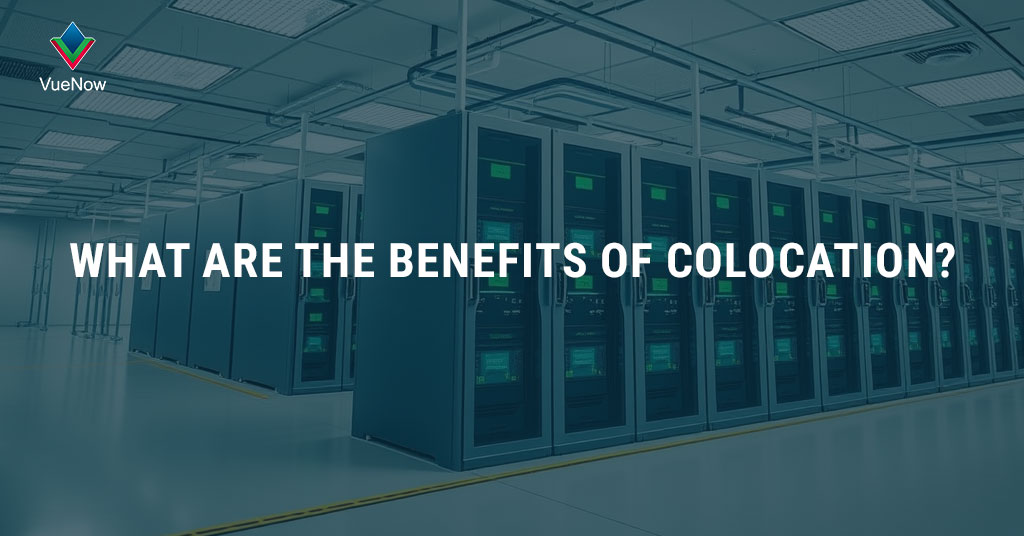
Colocation offers businesses numerous advantages in terms of cost savings, enhanced connectivity, improved security, and scalability. This strategic approach to IT infrastructure allows organisations to optimise operational efficiency while leveraging robust, reliable data center environments.
Moving from internal data management to outsourcing within a data center can prove to be very cost-effective for businesses. By taking the responsibility of data management in-house, businesses have to manage all the major variables and expenses themselves, which can be time-consuming and disruptive to maintaining day-to-day operations. Colocation service plans are comprehensive packages that offer integrated benefits such as support, security, redundancy and connectivity at bundled prices or discounted prices compared to on-premise hosting. In addition, outsourcing ensures that businesses have the assurance that their information is stored in a resilient and reliable environment, eliminating unpredictable fluctuations such as hiring additional security personnel, expensive equipment maintenance, office migrations and power outages. Leveraging colocation for IT outsourcing needs allows businesses to focus more efficiently on their core efforts and resources.
Vendor-neutral data centers offer colocation customers a wide range of connectivity options. This wide range of connectivity is a key benefit of colocation and one of the main reasons why companies undertake data center migration rather than building their private facilities. In addition to the significant cost of building out the physical infrastructure of a private data center, new cables must be laid and integrated to connect the facility to major service providers. These connections can be prohibitively expensive, especially if the provider needs to expand its infrastructure to meet the needs of the facility.
In many cases, the benefit simply does not exist, which can result in private investment being dependent on a limited number of providers, creating the risk of provider lock-in. Colocation customers can choose from multiple Internet service providers, network services and cloud platforms to easily build a network infrastructure that meets their specific needs. Cross-connections and hybrid/multi-cloud architectures allow organisations to fully optimise their workloads and improve speed and capabilities. Colocation facilities can easily connect to major providers through the exchange market, allowing customers to consider different options when building their data center migration checklist.
Businesses want to know that their data is protected and monitored 24/7. Colocation providers are meeting the demands for stricter and smarter security by implementing the latest protocols in both physical infrastructure and cybersecurity. Multi-layered physical security protocols start with location. Colocation data centers are typically located strategically away from the customer's headquarters. They also have an on-site IT support team that monitors the security of technology systems around the clock and proactively reports anomalies. Other physical security measures include electronic access cards, vehicle access barriers and 24-hour camera monitoring, supported by ongoing upgrades to personnel monitoring, physical attack prevention and fire detection and control. Colocation data centers also utilize cutting-edge cyber security protocols, including next-generation firewalls and a suite of managed backup services that ensure the recovery of both physical and virtual data in the event of a disaster or loss. With large-scale corporate data theft on the rise, companies should seriously consider making data center colocation a cornerstone of their disaster recovery plan.
Most companies that choose colocation send their technicians to the data center for maintenance or emergencies. For this reason, many choose to build a level of redundancy into their infrastructure so that technicians do not have to visit the data center every time a hardware component fails. They can also hire external personnel to replace defective parts at the data center, usually on a pay-per-use basis.
Colocation services offer businesses scalability they can't get in their own server rooms or data centers. A colocation setup allows you to expand quickly and seamlessly. Most large colocation facilities offer direct connections to many cloud providers in the same data center campus, making expansion within a hybrid data center model relatively easy. Additionally, colocation gives you better control over fixed costs and long-term IT budgets, making it easier to grow without breaking the bank. Colocation allows you to scale your infrastructure to accommodate business growth without investment. As your business grows, your IT infrastructure can scale quickly with less investment to support it. Colocation can also be a step towards cloud migration. If your business is considering cloud computing soon, colocation can make that transition smoother by allowing you to move your equipment to an off-site facility with increased capacity and performance to meet your business needs while ensuring a smooth cloud migration.
Colocation provides businesses with significant advantages including cost savings, enhanced connectivity options, improved network security, reliable service and support, and scalable infrastructure solutions. By outsourcing data management to colocation providers, businesses can focus more effectively on their core operations while leveraging robust, secure, and scalable IT environments to support their growth and resilience needs.

IaaS experts in Edge Data Centers, Co-location, and Network Management, delivering precise, competitive solutions.
© 2024 VueNowOnline.All Rights Reserved.
We use cookies to ensure that we give you the best experience on our website. By continuing, you accept all cookies.